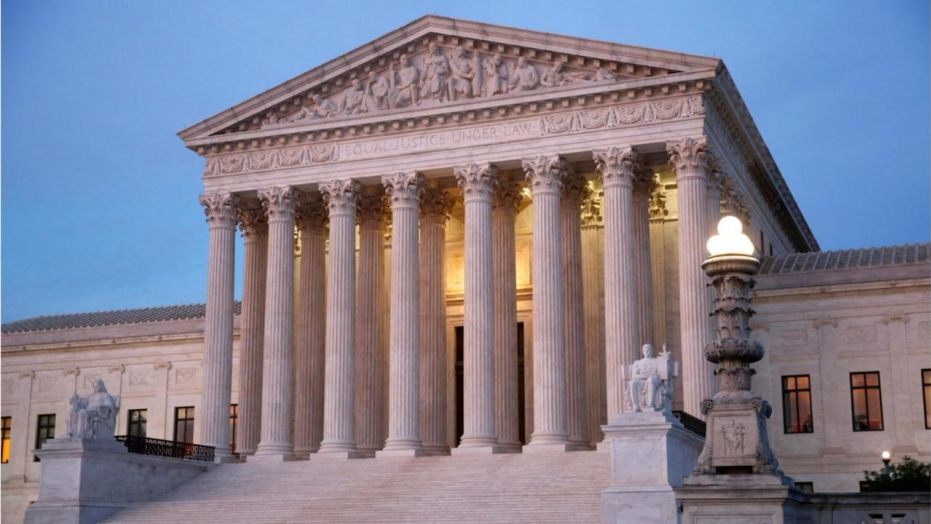By: The Editorial Board – wsj.com – June 13, 2024
In FDA v. Alliance for Hippocratic Medicine, the Justices rejected a challenge by pro-life doctors to Food and Drug Administration regulations that expanded access to the abortion pill mifepristone. So much for the left’s denunciations of the Court as “Christian Nationalist.”
Pro-life doctors argued the FDA’s easing of dispensing rules on mifepristone in 2016 and 2021 were arbitrary and capricious. Yet as Justice Brett Kavanaughexplains for the Court, the doctors failed to satisfy the “bedrock constitutional requirement” of legal standing.
This requires plaintiffs to show they’ve suffered, or are likely to suffer, an injury caused by a defendant that can be redressed by courts. “By limiting who can sue, the standing requirement implements ‘the Framers’ concept of the proper—and properly limited—role of the courts in a democratic society,’” Justice Kavanaugh writes.
Doctors advanced the convoluted theory that the FDA changes would cause more pregnant women to seek emergency abortions, which could increase malpractice insurance costs. But the doctors failed to document instances of being sued for treating women with mifepristone complications.
Doctors also said they could be forced to participate in emergency abortions that violate their conscience. Not so. “Federal conscience laws have protected pro-life doctors ever since FDA approved mifepristone in 2000,” Justice Kavanaugh notes. In any event, allowing doctors “to challenge general safety regulations as unlawfully lax would be an unprecedented and limitless approach and would allow doctors to sue in federal court to challenge almost any policy affecting public health.”
As Justice Kavanaugh underscores, “there would be no principled way to cabin such a sweeping doctrinal change to doctors or other healthcare providers.” Firefighters could challenge building codes, and police softer crime policies: “That path would seemingly not end until virtually every citizen had standing to challenge virtually every government action that they do not like.”
***
Separately, the Justices ruled (Starbucks v. McKinney) that their traditional four-part test for granting preliminary injunctions applies to the National Labor Relations Board. A regional board director charged Starbucks with violating labor law by firing workers who broke company rules. She then asked a lower court to reinstate the workers.
Under the Supreme Court’s traditional test, a party seeking a preliminary injunction must demonstrate “he is likely to succeed on the merits, that he is likely to suffer irreparable harm in the absence of preliminary relief, that the balance of equities tips in his favor, and that an injunction is in the public interest.”
Yet the Sixth Circuit Court of Appeals has long applied a more deferential test, requiring only that the board show “reasonable cause” that “unfair labor practices have occurred” and that “injunctive relief is just and proper.”
As Justice Clarence Thomas writes for the Court, this standard “substantively lowers the bar for securing a preliminary injunction by requiring courts to yield to the Board’s preliminary view of the facts, law, and equities.” Justice Ketanji Brown Jackson concurred, but opined in a partial dissent that courts should pay the board some deference.
The Court’s unanimity is notable after progressives claimed that ruling for Starbucks would gut labor law. Liberal Justices don’t appear to agree. Once again, Democrats triggered an alarm when there was no fire to undermine public confidence in the Court.
Now they are spinning their legal victory in the abortion case into a political defeat. “Today’s decision does not change the fact that the fight for reproductive freedom continues” and “contraception and IVF are under attack,” declared President Biden.
What the rulings really show, again, is that the current Court majority is putting the law first, even if it means a policy defeat for their political beliefs. The critics were wrong—again.
To see this article in its entirety and to subscribe to others like it, please choose to read more.
 Listen Online
Listen Online Watch Online
Watch Online Find a Station in Your Area
Find a Station in Your Area









 Listen Now
Listen Now Watch Online
Watch Online
